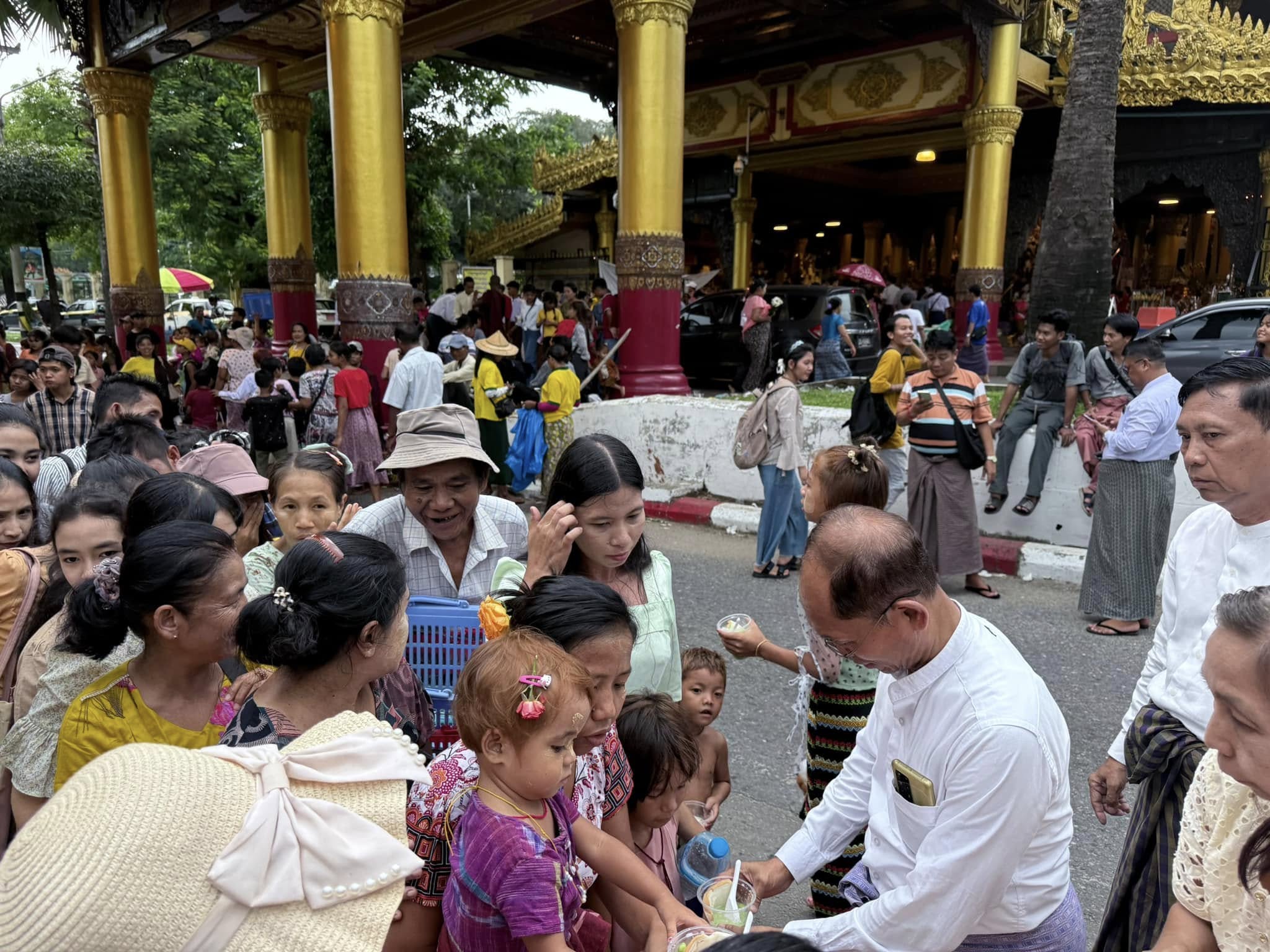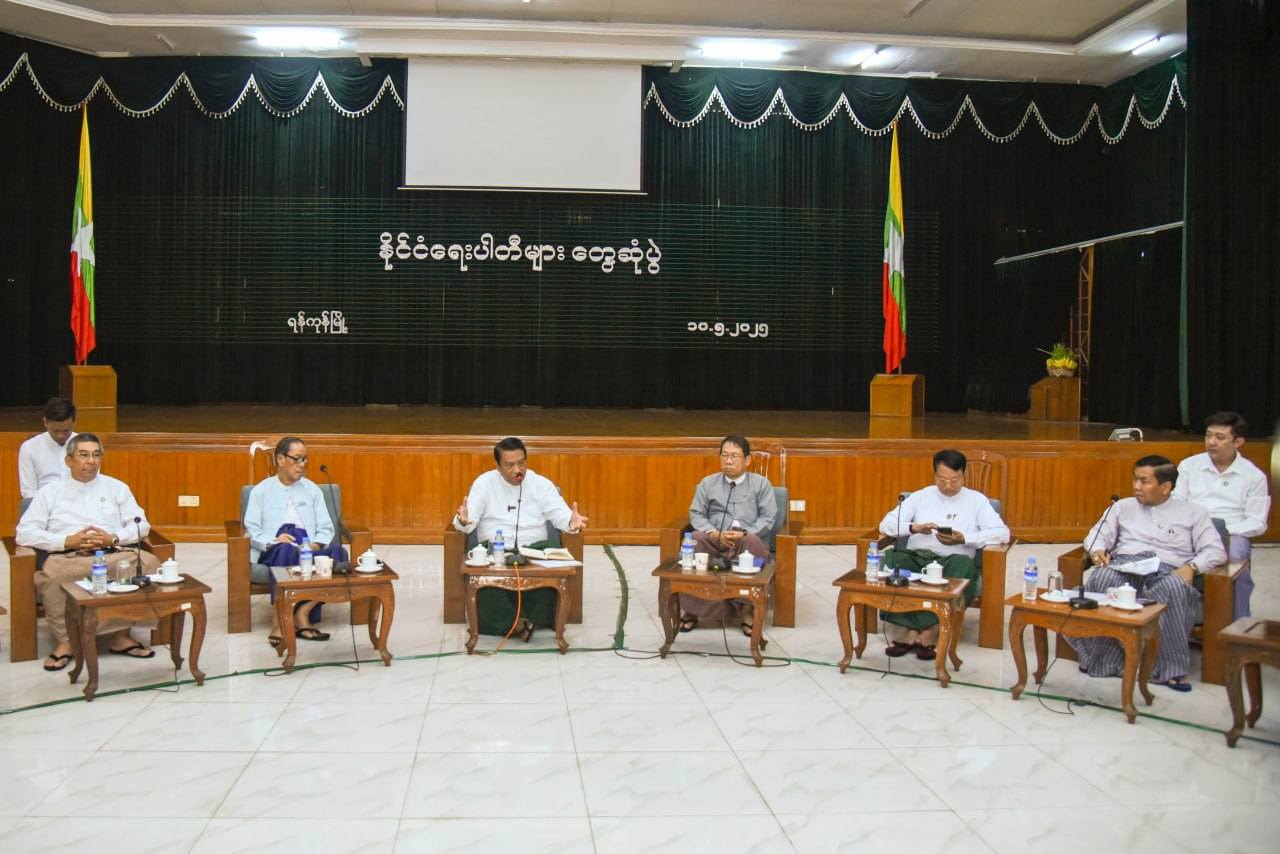CNI News
26 November 2025
Political analyst U Htet Aung Kyaw told CNI News that giving out rice and cooking oil to the public during election periods is a type of politics that cannot be trusted.
He said political parties should talk about how they will develop the country and improve people’s social and economic lives, not resort to handing out rice, oil, or eggs—practices that should not exist in politics.
He explained:“Politics where they give rice, cooking oil, or other items to the public—I don’t trust that kind of politics. Anyone with money can do it. Such rice and oil giveaways are basically a form of vote-buying. We cannot accept that. In Thai politics, this kind of thing is very common. We can’t say it doesn’t happen in Myanmar politics either.A political party should talk about how it will govern the country, what policies it has, and how it will improve social and economic life. They should explain these things clearly to earn public trust before taking action. Instead, giving little bags of rice, little bottles of oil, or distributing eggs is not something that should exist in politics. They must explain clearly what political, economic, and social policies they have for the country, what current policies are wrong, and why. Instead of talking about big theories that confuse people, they should explain in simple and clear language that reaches directly into the hearts of the people,” he said.

Giving Shwe Yin Aye ( cold sweet drinks) to the public
Political observers pointed out that because political parties fail to address the real hardships that people face, and only start making campaign speeches when they need votes during elections, the public has increasingly lost trust.
Similarly, giving out rice, oil, eggs, and other food items during election season to persuade people to vote is also not considered a firm policy or a principled stance, they added.
In response, U Hla Thein, spokesperson of the Union Solidarity and Development Party (USDP), told CNI News that political parties should not be prohibited from carrying out charitable acts while doing party work.
He said: “When rice or oil is given to the public, they give it out of their own goodwill. Should a political party be banned from doing charitable deeds while engaging in party activities? People also need to think about this. For example, if someone wants to offer alms to monks, should they not be allowed to? This isn’t political campaigning. It’s voluntary charity. Should charity for the people also be disallowed? People need to understand this. It’s difficult to speak to those who criticize everything—some people look at everything with suspicion,”.

Political parties
Observers note that although giving basic food items to the public is good in itself, when such donations happen only during election periods and disappear afterward, it raises the question of whether the intent is sincere charity or self-serving political gain.
Additionally, political parties often fail to fulfill the promises made during their election campaigns, and many elected representatives do not even return to their constituencies after winning. Because of such failures, public trust in political parties has eroded.
Myanmar will hold Election Phase 1 on December 28, 2025. Phase 2 will take place on January 11, 2026, followed by Phase 3 in the last week of January 2026, according to an announcement by Major General Zaw Min Tun, spokesperson of the National Defense and Security Council, on November 10.




